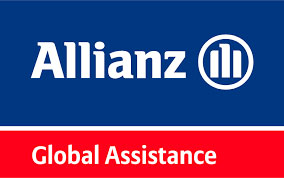
Talking insurance
Questions & Answers with Dan Keon, Allianz Global Assistance

Keon
In the second part of an extended version of Canadian Travel Press’ popular Five Questions feature Allianz Global Assistance’s Canadian vice president, market management, Dan Keon talks about some of the highlights of Allianz Global’s 2020 Winter Vacation Confidence Index.
1. Allianz has just released its annual Winter Vacation Confidence survey…what kind of insights does this year’s survey offer agents about their clients?
 The Winter Vacation Confidence Index showed that Canadians will spend about $13.5 billion on travel this year. The average spend for a winter vacation is $2,700, however, we also found that 51% of Canadians say they won’t be taking a winter vacation this year, and two-thirds of those say the reason is that they can’t afford it. Cost is always an important consideration, which is why protecting that investment with travel insurance will continue to be important as travelling becomes more expensive.
The Winter Vacation Confidence Index showed that Canadians will spend about $13.5 billion on travel this year. The average spend for a winter vacation is $2,700, however, we also found that 51% of Canadians say they won’t be taking a winter vacation this year, and two-thirds of those say the reason is that they can’t afford it. Cost is always an important consideration, which is why protecting that investment with travel insurance will continue to be important as travelling becomes more expensive.
2. Does the latest survey reveal any surprises?
There has been a rapid increase in dollars spent on travel in this country. Based on an average spend of almost $3,000 per household, the study projects Canadians will spend over $13.5 billion on travel this year – up from $12.2 billion a year ago and up significantly from $10.7 billion in 2016, which is a major jump of 25%.
3. What are the spending differences across regions of the country and what age group spends the most on travel?
We learned from our Winter Vacation Confidence Index that people in the Prairie Provinces have the highest average spend at $3,365, while the lowest is Quebec at $1,908. Ontarians expect to spend an average of $3,012, just slightly higher than the national average of $2,700. Not surprisingly, Baby Boomers spend the most with an average of $3,299, while Millennials are significantly lower at $2,205.
4. Do you think that frequent business travellers are less likely to have travel insurance than vacationers?
Making last minute trips, sometimes only for a day away, some business travellers may believe they are fully covered under their workplace benefits plan. However, they should still read their policy carefully so that they understand what they are covered for. If there are limitations, then they could consider purchasing an annual plan. Agents should advise every traveller, even the short-turn business flyers, of the importance of being adequately covered and understanding the coverage they have in place, whatever the source.
5. Should agents advise their clients about travel insurance even if they are just travelling within Canada?
Absolutely. Travel insurance isn’t limited to medical and health coverage. For travellers within the country, agents can advise their clients on coverage that includes trip cancellation, trip interruption and baggage loss. Plus, provincial healthcare coverage won’t cover all expenses outside your home province.
For example, the cost of a ground or air ambulance in another province is typically not covered by provincial healthcare plans and can be very expensive, so having additional travel medical insurance is worth considering.
6. Adventure travel is becoming more popular every year. What should agents know about travel insurance when booking these types of trips for clients?
First, studies have shown that risky behaviour increases while on vacation, so people need to understand if they are covered for the types of activities they may have planned for their trip. For example, certain activities like rock climbing, skydiving or even scuba diving beyond certain depths may be excluded. Agents can help inform adventurers, and, in fact, all travellers, of risks, how to mitigate them, and both the benefits and limitations of their travel insurance coverage.
7. Single travel is also becoming more popular. What special precautions should single travellers be aware of?
In addition to the safety precautions every traveller should take in an unfamiliar place, the single traveller should stay well connected with family and friends. There are also a number of apps that can be very useful when travelling alone. For example, we recommend that people download TripWise, the free app from Allianz Global Assistance, when they purchase their insurance. TripWise provides useful tools including local hospital searches with a GPS locator. Travellers can also access a database to find the closest Allianz-reviewed local healthcare provider with the phone number, address and website. The database includes 2,000 hospitals in 129 countries. It will also allow users to find international names for common prescription medications and store a photo of their prescription label for easy reference while travelling.
